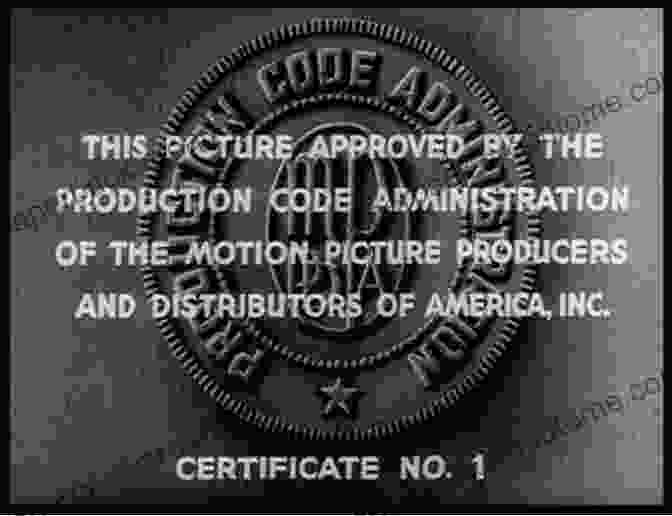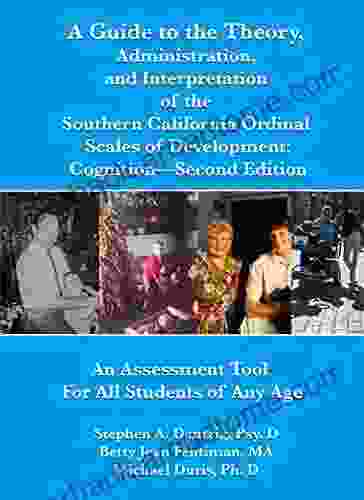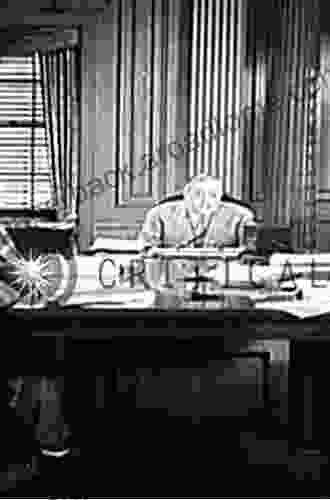Joseph Breen and the Production Code Administration: Guardians of Hollywood Morality

The Production Code Administration (PCA),established in 1930, was a self-regulatory body that enforced the Motion Picture Production Code. Led by Joseph Breen, a prominent Catholic layman, the PCA played a pivotal role in shaping the content of Hollywood films for over three decades. This article delves into the history, impact, and legacy of the PCA and its enigmatic leader, Joseph Breen.
The Production Code
In the wake of the scandalous "talkies" of the late 1920s, the American film industry faced mounting pressure from conservative religious and civic groups to regulate film content. In response, Will Hays, president of the Motion Picture Producers and Distributors of America (MPPDA),drafted the Motion Picture Production Code. The code established a set of moral guidelines prohibiting the depiction of profanity, sexual immorality, drug use, violence, and other topics deemed harmful or offensive.
4.3 out of 5
| Language | : | English |
| File size | : | 3174 KB |
| Text-to-Speech | : | Enabled |
| Screen Reader | : | Supported |
| Enhanced typesetting | : | Enabled |
| Word Wise | : | Enabled |
| Print length | : | 442 pages |
Joseph Breen and the PCA
Joseph Breen, a devout Catholic and former journalist, was appointed as the first director of the PCA in 1934. Breen was a charismatic and influential figure who brought both his moral convictions and his understanding of the film industry to the role. Under his leadership, the PCA enforced the Production Code with zeal, reviewing every Hollywood film before its release.
Methods and Enforcement
The PCA operated through a meticulous review process. Films were submitted to the PCA for examination, and if any violations of the Production Code were found, the producers were required to make revisions. The PCA employed a team of censors who meticulously analyzed scripts, costumes, and dialogue for any questionable content. In some cases, films were outright rejected or heavily edited to comply with the code.
Impact on Hollywood
The PCA had a profound impact on the content of Hollywood films. The Production Code effectively sanitized the industry, eliminating explicit sexuality, violence, and profanity. Films were forced to adopt a more moralistic tone, often promoting traditional family values and conservative ideals. The PCA's influence extended beyond the screen, shaping the public perception of Hollywood and its role in society.
Controversies and Criticisms
The PCA's strict enforcement of the Production Code sparked both praise and controversy. Religious groups and moralists celebrated the PCA as a guardian of decency, while critics argued that it stifled artistic expression and imposed a narrow and outdated moral framework on the film industry. The PCA's prohibition of certain topics, such as homosexuality and premarital sex, drew particular criticism from liberal and progressive groups.
Decline and Legacy
The power of the PCA waned in the 1960s as social and cultural norms shifted. The rise of independent filmmakers and the increasing popularity of foreign films challenged the dominance of the Hollywood studio system and the PCA's authority. In 1966, the Production Code was replaced by the more lenient Ratings System, which allowed for greater artistic freedom and diversity in film content.
Despite its dismantling, the legacy of the PCA and Joseph Breen continues to be debated. Some argue that the PCA played a positive role in protecting audiences from harmful content, while others maintain that it stifled creativity and hindered the development of more mature and realistic films.
Joseph Breen and the Production Code Administration left an enduring mark on the history of Hollywood. Through their strict enforcement of the Production Code, they shaped the content and image of American films for over three decades. The controversy and debate surrounding the PCA's role continue to this day, highlighting the enduring power of moral regulation in the entertainment industry and society at large.
Alt Attribute and SEO Title

4.3 out of 5
| Language | : | English |
| File size | : | 3174 KB |
| Text-to-Speech | : | Enabled |
| Screen Reader | : | Supported |
| Enhanced typesetting | : | Enabled |
| Word Wise | : | Enabled |
| Print length | : | 442 pages |
Do you want to contribute by writing guest posts on this blog?
Please contact us and send us a resume of previous articles that you have written.
Light bulbAdvertise smarter! Our strategic ad space ensures maximum exposure. Reserve your spot today!

 Jay SimmonsGuide to the Theory, Administration, and Interpretation of the Southern: An...
Jay SimmonsGuide to the Theory, Administration, and Interpretation of the Southern: An... Stephen KingFollow ·12.6k
Stephen KingFollow ·12.6k Don ColemanFollow ·14.1k
Don ColemanFollow ·14.1k Ben HayesFollow ·19.5k
Ben HayesFollow ·19.5k Kirk HayesFollow ·12.6k
Kirk HayesFollow ·12.6k Ralph TurnerFollow ·6.6k
Ralph TurnerFollow ·6.6k George HayesFollow ·2.7k
George HayesFollow ·2.7k Jamal BlairFollow ·18.9k
Jamal BlairFollow ·18.9k Jesse BellFollow ·15.7k
Jesse BellFollow ·15.7k

 Isaiah Powell
Isaiah PowellWisconsin Clinic Pilots Mobile Crisis Response System For...
MADISON, Wis. - A new mobile crisis...

 Daniel Knight
Daniel KnightUnleash Your Creativity: A Masterclass in Fabulous Nail...
Embellish Your Fingertips with Captivating...

 Clark Campbell
Clark CampbellDetect When You Are Being Emotionally Manipulated By...
Emotional manipulation is a subtle but...

 Eli Brooks
Eli BrooksNeurological Disorders Papers: Dissociative Identity...
What is Dissociative...

 Ricky Bell
Ricky BellAn Introduction to Islam for Jews: Unveiling the Tapestry...
A Bridge of Understanding: Exploring Islam for...

 Octavio Paz
Octavio PazAchieving Longevity: The Complete Step-by-Step Guide to...
**** In the ever-evolving landscape of health...
4.3 out of 5
| Language | : | English |
| File size | : | 3174 KB |
| Text-to-Speech | : | Enabled |
| Screen Reader | : | Supported |
| Enhanced typesetting | : | Enabled |
| Word Wise | : | Enabled |
| Print length | : | 442 pages |
















































